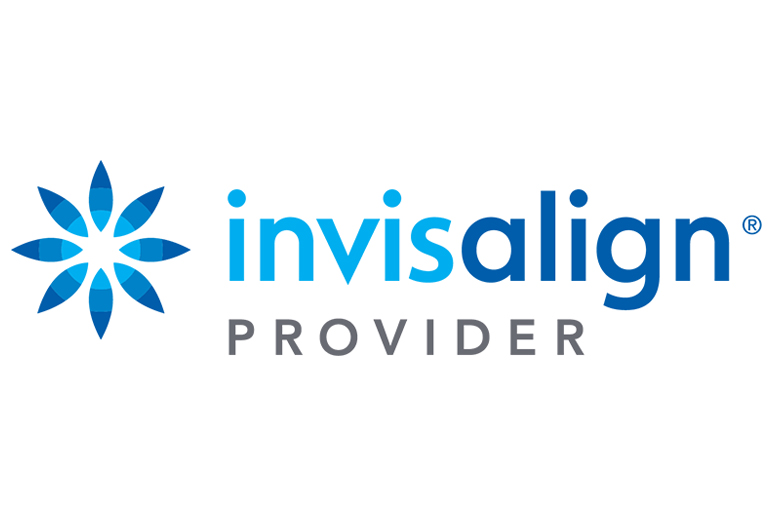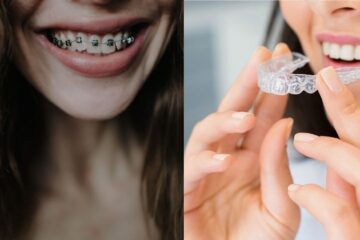
Have you ever wondered why some people seem to have naturally strong teeth while others experience frequent chipping, cracking, or breaking? The answer often lies deeper than genetics or oral hygiene habits – it could be rooted in nutritional deficiencies that weaken your teeth from within.
When your teeth break unexpectedly, it’s not just about avoiding hard foods or protecting them during sports. Your body’s nutritional status plays a crucial role in maintaining tooth structure and strength. Understanding which deficiencies contribute to dental fragility can help you take proactive steps to protect your smile and prevent costly dental emergencies.
The Foundation of Strong Teeth: Essential Nutrients
Your teeth are living structures that require constant nourishment to maintain their strength and integrity. When your body lacks certain key nutrients, your teeth become vulnerable to damage, decay, and breakage. Let’s explore the critical deficiencies that can turn your strong, healthy teeth into brittle, break-prone structures.
Primary Deficiencies That Cause Teeth to Break
Calcium Deficiency: The Building Block Crisis
Calcium forms approximately 99% of your tooth structure, making it the most critical mineral for dental strength. When your body doesn’t receive adequate calcium, it begins to leach this essential mineral from your teeth and bones to maintain vital bodily functions.
Signs of calcium deficiency affecting teeth:
- Increased tooth sensitivity
- Frequent chipping or cracking
- Weakened enamel that appears translucent
- Higher susceptibility to cavities
- Teeth that feel “soft” or fragile
Daily calcium requirements:
- Adults (19-50 years): 1,000 mg
- Women over 50: 1,200 mg
- Men over 70: 1,200 mg
Vitamin D Deficiency: The Calcium Absorption Problem
Even if you consume enough calcium, your body cannot properly absorb it without adequate vitamin D. This vitamin acts as a key that unlocks your body’s ability to utilize calcium effectively. A vitamin D deficiency creates a domino effect – poor calcium absorption leads to weakened teeth that are prone to breaking.
Impact of vitamin D deficiency on dental health:
- Reduced calcium absorption (up to 85% decrease)
- Weakened tooth enamel formation
- Increased risk of tooth decay
- Delayed tooth development in children
- Compromised immune response in gums
Secondary Nutritional Deficiencies Affecting Tooth Strength
| Nutrient | Role in Dental Health | Deficiency Symptoms | Food Sources |
|---|---|---|---|
| Phosphorus | Works with calcium to strengthen enamel | Weak, brittle teeth; increased cavities | Fish, poultry, dairy, nuts |
| Magnesium | Aids calcium absorption and bone formation | Tooth sensitivity, weak enamel | Leafy greens, seeds, whole grains |
| Vitamin C | Collagen production for gum health | Bleeding gums, loose teeth | Citrus fruits, berries, vegetables |
| Vitamin K2 | Directs calcium to teeth and bones | Weak tooth structure, dental decay | Fermented foods, egg yolks, cheese |
| Protein | Provides amino acids for tooth repair | Slow healing, weak tooth structure | Lean meats, fish, legumes, dairy |
The Vitamin C Connection: Beyond Scurvy
While severe vitamin C deficiency (scurvy) is rare today, mild deficiencies are common and significantly impact dental health. Vitamin C is essential for collagen production, which forms the foundation of your tooth structure and supports healthy gums.
How vitamin C deficiency affects teeth:
- Weakened collagen matrix in teeth
- Increased bleeding and inflammation in gums
- Poor wound healing after dental procedures
- Reduced resistance to bacterial infections
- Compromised tooth attachment to gums
Risk Factors That Increase Nutritional Deficiencies
Understanding who is most at risk for these deficiencies can help you identify if you need to pay extra attention to your nutritional intake:
High-risk groups include:
- Individuals with restrictive diets (vegan, extreme low-carb)
- People with digestive disorders (Crohn’s disease, celiac disease)
- Elderly adults with reduced appetite or absorption
- Pregnant and breastfeeding women with increased needs
- Those with limited sun exposure (vitamin D deficiency)
- People taking certain medications that interfere with nutrient absorption
The Modern Diet Dilemma: Why Deficiencies Are Common
Today’s processed food environment makes it challenging to obtain optimal levels of tooth-strengthening nutrients. Many people consume adequate calories but remain undernourished in essential vitamins and minerals.
Common dietary pitfalls:
- Excessive consumption of processed foods
- Limited intake of fresh fruits and vegetables
- Reduced dairy consumption due to lactose intolerance
- Inadequate protein intake, especially in plant-based diets
- High sugar intake that depletes nutrients and feeds harmful bacteria
Prevention Strategies: Building Stronger Teeth Through Nutrition
Dietary Recommendations for Optimal Dental Health
Creating a tooth-friendly diet doesn’t require dramatic changes – small, consistent improvements can make a significant difference in your dental health.
Power foods for strong teeth:
- Dairy products: Rich in calcium, phosphorus, and protein
- Leafy greens: High in calcium, magnesium, and folate
- Fatty fish: Provides vitamin D, calcium, and omega-3 fatty acids
- Nuts and seeds: Good sources of magnesium, phosphorus, and healthy fats
- Lean proteins: Supply essential amino acids for tooth repair
Smart Supplementation Guidelines
While food sources are preferred, supplements can help bridge nutritional gaps when dietary intake is insufficient.
Supplementation considerations:
- Calcium with vitamin D3 for optimal absorption
- Magnesium to support calcium utilization
- Vitamin C for gum health and collagen production
- Vitamin K2 to direct calcium to teeth and bones
Important note: Always consult with a healthcare provider or visit a reputable dental clinic in Kharadi before starting new supplements, as some can interact with medications or existing health conditions.
Professional Dental Care: Your First Line of Defense
While proper nutrition is fundamental for strong teeth, regular professional care remains essential for maintaining optimal dental health. The experienced team at Clippy Smile understands the connection between nutrition and dental health, providing comprehensive care that addresses both immediate dental needs and long-term prevention strategies.
Professional services that complement good nutrition:
- Regular cleanings to remove harmful plaque buildup
- Fluoride treatments to strengthen enamel
- Nutritional counseling for optimal dental health
- Early detection of deficiency-related dental problems
- Customized prevention plans based on individual risk factors
Warning Signs: When to Seek Professional Help
Recognizing the early signs of deficiency-related tooth problems can prevent more serious issues down the road. If you notice any of these symptoms, it’s important to consult with a qualified dentist in Kharadi:
Immediate attention needed for:
- Sudden increase in tooth sensitivity
- Teeth that chip or crack easily
- Changes in tooth color or transparency
- Gums that bleed frequently or appear inflamed
- Teeth that feel loose or unstable
- Persistent bad breath despite good oral hygiene
The Recovery Process: Rebuilding Strong Teeth
The good news is that addressing nutritional deficiencies can help strengthen your teeth over time. While severely damaged teeth may require professional treatment, improving your nutritional status can prevent further deterioration and support your body’s natural repair processes.
Timeline for improvement:
- Weeks 1-4: Improved gum health and reduced inflammation
- Months 1-3: Stronger enamel formation and reduced sensitivity
- Months 3-6: Noticeable improvement in overall tooth strength
- 6+ months: Optimal benefits with consistent nutritional support
Conclusion: Taking Action for Stronger Teeth
Understanding what deficiency causes teeth to break empowers you to take control of your dental health through informed nutritional choices. By addressing calcium, vitamin D, and other essential nutrient deficiencies, you can significantly reduce your risk of tooth breakage and maintain a healthy, strong smile throughout your life.
Remember that dental health is a partnership between good nutrition, proper oral hygiene, and professional care. The knowledgeable team at Clippy Smile is committed to helping you achieve optimal dental health through comprehensive care that addresses all aspects of tooth strength and longevity.
Don’t wait for your teeth to break to take action. Start implementing these nutritional strategies today, and consider scheduling a consultation at a trusted dental clinic in Kharadi to develop a personalized plan for maintaining strong, healthy teeth for years to come. Your smile – and your overall health – will thank you for taking these proactive steps toward better dental nutrition.
Frequently Asked Questions
1. How long does it take to see improvement in tooth strength after addressing nutritional deficiencies?
While individual results vary, most people begin noticing improvements within 4-6 weeks of consistent nutritional supplementation and dietary changes. Initial improvements include reduced tooth sensitivity and healthier gums. Significant strengthening of tooth enamel typically occurs over 3-6 months. However, severely damaged teeth may require professional treatment at Clippy Smile alongside nutritional interventions for optimal results.
2. Can broken teeth heal naturally if I fix my nutritional deficiencies?
Unfortunately, once a tooth is physically broken or cracked, it cannot heal itself naturally like bone tissue. However, addressing nutritional deficiencies can prevent further damage and strengthen the remaining tooth structure. For broken teeth, it’s essential to visit a qualified dentist in Kharadi immediately to prevent infection and restore function through professional treatments like crowns, fillings, or bonding.
3. Are calcium supplements as effective as getting calcium from food sources?
While calcium supplements can help bridge nutritional gaps, food sources are generally preferred because they provide calcium alongside other supporting nutrients like phosphorus, magnesium, and vitamin K2. Dairy products, leafy greens, and fortified foods offer better absorption rates. If you choose supplements, take them with vitamin D and magnesium for optimal absorption, and consult with professionals at a dental clinic in Kharadi for personalized recommendations.
4. What are the early warning signs that my teeth are weakening due to nutritional deficiencies?
Early warning signs include:
- Increased tooth sensitivity to hot, cold, or sweet foods
- Teeth that appear more translucent or yellow
- Frequent small chips or cracks in teeth
- Gums that bleed easily during brushing
- Bad breath that persists despite good oral hygiene
- Teeth that feel rough or have white spots on the surface
If you notice these symptoms, schedule an appointment with Clippy Smile for a comprehensive evaluation.
5. Can children's teeth break more easily due to nutritional deficiencies?
Yes, children are particularly vulnerable to deficiency-related tooth problems because their teeth are still developing. Calcium, vitamin D, and phosphorus deficiencies during childhood can result in:
- Delayed tooth eruption
- Weak enamel formation
- Increased cavity risk
- Higher likelihood of tooth fractures
- Poor root development
Ensuring adequate nutrition during childhood is crucial for lifelong dental
6. How do I know if my tooth breakage is due to deficiency or other factors like grinding or trauma?
Deficiency-related tooth breakage typically shows specific patterns:
- Multiple teeth affected rather than isolated incidents
- Gradual weakening over time rather than sudden breaks
- Associated symptoms like gum problems or sensitivity
- Breaks occurring with minimal force or during normal activities
A comprehensive examination at a reputable dental clinic in Kharadi can help determine the underlying cause through clinical assessment, dietary analysis, and possibly blood tests to check nutrient levels.
7. Is it possible to have strong teeth on a vegan or vegetarian diet?
Absolutely! While plant-based diets require more careful planning, you can maintain excellent dental health by focusing on:
- Calcium-rich foods: Fortified plant milks, sesame seeds, almonds, leafy greens
- Vitamin D: Fortified foods and adequate sun exposure or supplements
- B12 supplementation: Essential for overall oral health
- Protein variety: Legumes, nuts, seeds, and quinoa for amino acids
- Vitamin C: Abundant in fruits and vegetables
The key is ensuring balanced nutrition and regular monitoring. The team at Clippy Smile can provide specialized guidance for maintaining optimal dental health on plant-based diets.




